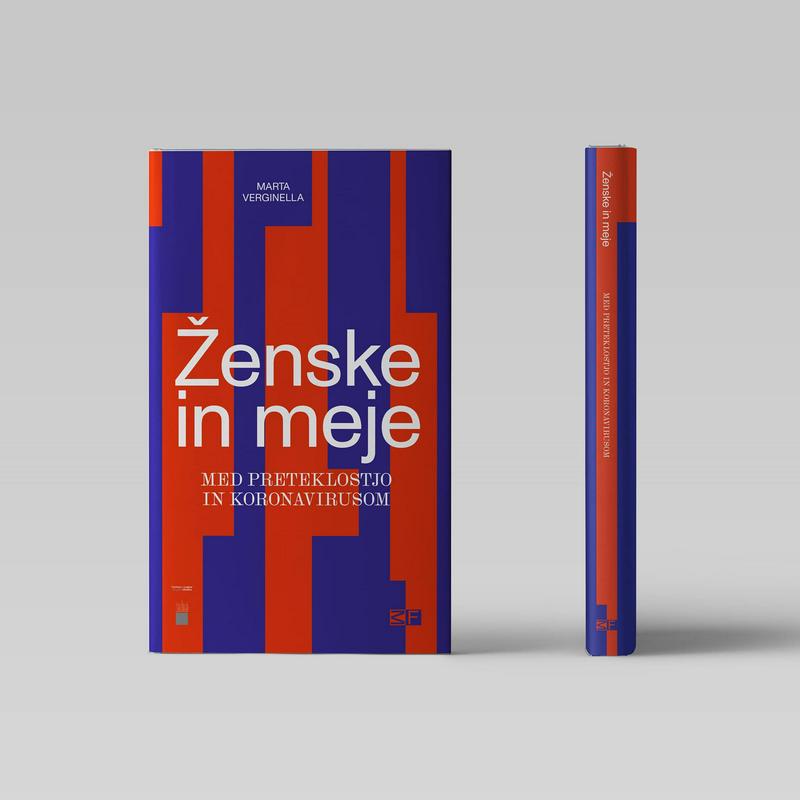
Marta Verginella’s book Women and Borders is a genre hybrid, “which combines research erudition about women forced to cross borders for survival and an autobiographical account of the closure of the world and borders during the coronavirus epidemic.”

One of the most established Slovenian historians Marta Verginella – Professor at the Department of History at the Faculty of Arts, University of Ljubljana and head of the prestigious European project ERC Eirene – emphasized at the presentation of the book on Wednesday in the Atrium of ZRC SAZU that He lives between Trieste and Ljubljana.
The fact that she was unable to cross the Italian-Slovenian border at the time of the coronation was a traumatic interruption of the transition between the two areas. The book was written “out of fear, sadness and resistance to the way in which Slovenian politics inappropriately established border regimes during the epidemic, regardless of the needs of the border population”.
The book was published in Italian original last year“Especially in the turning points in history, there is a lack of women’s testimonies,” emphasized the author, who received the initiatives for writing mainly from the Italian side, the book was also published last year in the Italian original, under the title Women and confines at the Manifestolibri publishing house. She was warmly received by the Italian space, and they are also preparing a theatrical reading of the book next autumn.
The work he did Miso Renkoaccording to the author, responds to the inappropriate presentation of history in the border area, where there is only an established discourse that is not able to capture and perceive all history. “It’s also the answer to how quickly and stupidly borders can be re-established,” she pointed out at the presentation of the book, in which the historian also participated Marko Štuhec and philosopher Eva Bahovec.
The book presents the fates and living conditions of women who, despite their great social contribution, which enabled the survival of entire families and communities, were often doubly overlooked, both during their own lives and from a historical perspective. .
It focuses on the world of breadwinners, washerwomen, domestic helpers, refugees, smugglers and Alexandrian women, while also illuminating the own position of a historian, intellectual and cosmopolitan who was accustomed to moving among different cultural environments until a pandemic forced her to close her home. and the boundaries of his world. The focus of historian Marta Verginella’s work is mostly women, through whom she tells about the past of transnational environments and focuses on crossing borders, national, geographical, social and mental.
As she said in a conversation led by the historian and editor Manca G. Renkothis time she wrote in “intertwining of personal and historical”. It was an experiment with narrative, since “As I have thought many times, we cannot present a piece of history in the form of an essay, but we can literalize it.”. She describes easily recounting what happened to her during the epidemic and contemplating the relationship between continuity and discontinuity.
“I was not safe, sheltered, despite the rigor of following all the rules to limit coronavirus. The issue of the case, which is not foreseen, entered my biography and demanded a certain reaction from me. I was looking for a solution, keeping the work that would it could be a routine. And one of the solutions was to write a book. “
Stuhec pointed out that Verginella systematically consciously exchanges “a diary form that essayistically raises questions of the past and historical situations that have relaunched”. It focuses on questions about the constraints we have been subjected to regardless of gender and political belief. He pointed out how history and the present are connected: “The present affects history, not the past, but the knowledge of history. In the last 30 years, a certain political option has raised the question of history and its functionalization, but Marta is not about that.”
The Slovenian translation of the book is also the first work in the new book collection M / F, edited by Verginella and Eva Bahovec. The collection is dedicated to women’s studies, as we have not had a collection for a long time that would publish exclusively works in the field of gender studies and women’s studies. They will also publish discussions of doctoral students, junior researchers and researchers, and will also bring important translations – all at the intersection of philosophy and history.
“Reflection is an integral part of my research”The next book to be published in the collection is the work of Eva Bahovec, who said that she finds it extremely important to connect historical and philosophical works from French and German critical theory so as not to fall into Anglo-Saxon studies. These, she said, are increasingly contributing to the flooding of thinking that is “Feminist currents are happening in our country as well”. She also finds it important to turn to women’s history from a predominantly sociological and sociological point of view to open up reflections. Work Women and borders according to her, it reflects two concepts, control and resistance.
Verginella describes reflection and empathy as two key features of his scientific work. These are the categories I use in my work, and I’ve been reminded of them by life. Reflection is an integral part of my research, I’ve always wondered about it in relation to political history. It’s important to control your emotional states. If you can’t, you are quicker to agree to stereotypical interpretation of history and manipulation. “
Štuhec explained why empathy is important for a historian. To be able to understand a historical actor, you need to have the ability to get into his head. Having what “to understand does not mean to agree with him; here is the essential difference”.
Source: Rtvslo